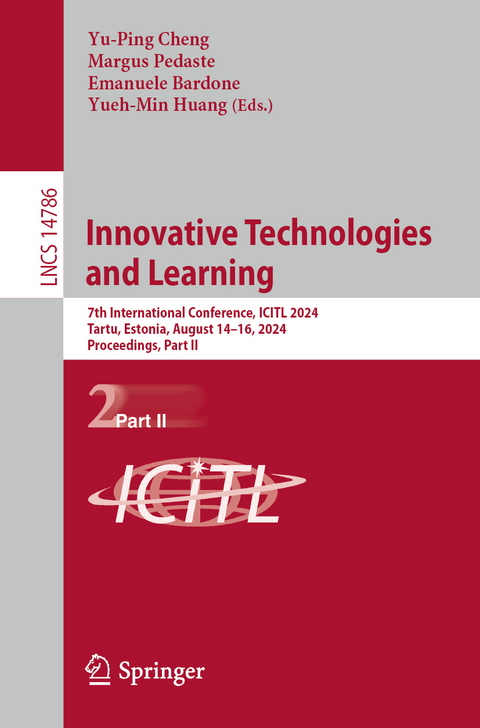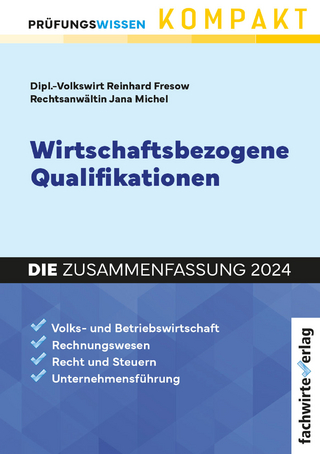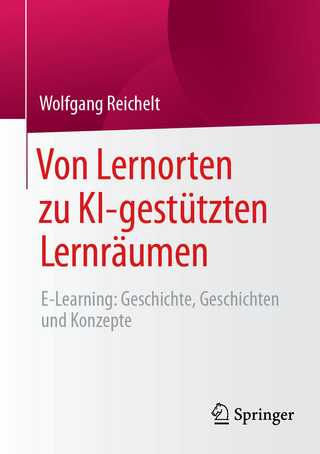
Innovative Technologies and Learning
Springer International Publishing (Verlag)
978-3-031-65883-9 (ISBN)
The two-volume set LNCS 14785 and 14786 constitutes the refereed conference proceedings of the 7th International Conference on Innovative Technologies and Learning, ICITL 2024, Tartu, Estonia, during August 14 -16, 2024.
The 60 full papers included in this book were carefully reviewed and selected from 131 submissions. They were organized in topical sections as follows:
Part One : Artificial Intelligence in Education; Computational Thinking in Education; Design and Framework of Learning Systems and Pedagogies to Innovative Technologies and Learning.
Part Two : STEM/STEAM Education; VR/AR/MR/XR in Education; and Application and Design of Generative Artificial Intelligence in Education.
.- STEM/STEAM Education.
.- The Relationship between Research Productivity and Teaching Effectiveness.
.- Teaching Postgraduate Students User Experience Evaluation Through Eye Tracking Technology: An Experiential Learning Approach.
.- Exploring the Impact of Digital Building Blocks on Spatial Self-Efficacy in Adults of Different Genders.
.- A study on elementary school students in the middle grades using mBot robot cars explore local communities in an interdisciplinary curriculum.
.- Play My Math: Second development cycle of an EdTech tool supporting the teaching and learning of fractions through music in algebraic notation.
.- Virtual Game on Everyday Statistics.
.- VR/AR/MR/XR in Education.
.- Immersive Learning Environments: Fostering Self-Directed Learning in Junior High School Students through Virtual Tours.
.- Designing an AR e-book to support STEAM education.
.- Applying the POEC Teaching Strategy to Virtual Reality Teaching Activities: A Case Study.
.- The Empirical Research on the Impact of Applying VR Technology to Students' Skill Learning in Machining Processing Courses on Questionnaire Evaluation.
.- Creating a virtual and physical learning environment for business management students - integrating AR and STEM teaching strategies.
.- Effects of an Augmented Reality University Drug Prevention Board Game on University Students' Gaming Anxiety and Flow Experience.
.- Exploring Virtual Collaboration Platforms for Product Design Courses: A Preliminary Evaluation Study.
.- The impact of feedback mechanism in VR learning environment.
.- Application and Design of Generative Artificial Intelligence in Education.
.- Students' Perceptions of Study Efficacy, Effectiveness, and Efficiency: Effects of Voice assistant Use.
.- Bridging Literature and Code: Empowering Students to Explore Digital Humanities through Generative AI.
.- Enhancing Python Learning through Retrieval-Augmented Generation: A Theoretical and Applied Innovation in Generative AI Education.
.- Use of taxonomy in planning teaching activities in higher education.
.- The Impact of Integrating AI Chatbots and Microlearning into Flipped Classrooms: Enhancing Students' Motivation and Higher-Order Thinking Skills.
.- GAI-assisted personal discussion process analysis.
.- Enhancing Engagement and Motivation in English Writing through AI: The Impact of ChatGPT-Supported Collaborative Learning.
.- Designing Social Robots for Learning: HRI Participatory Design Workshop.
.- Investigating the driving factors of the use of generative AI among college students.
.- AI in Teacher Education: Introductory Training for PreService Teachers involving Microsoft Copilot.
.- Bridging STEM Education and Ubiquitous Learning: A Case Study on Developing a LINE Chatbot with Google's Gemini for Virtual Peer Collaboration.
.- Leveraging OpenAI API for Developing a Monopoly Game-Inspired Educational Tool Fostering Collaborative Learning and Self-Efficacy.
| Erscheinungsdatum | 23.07.2024 |
|---|---|
| Reihe/Serie | Lecture Notes in Computer Science |
| Zusatzinfo | XVIII, 259 p. 100 illus., 88 illus. in color. |
| Verlagsort | Cham |
| Sprache | englisch |
| Maße | 155 x 235 mm |
| Themenwelt | Schulbuch / Wörterbuch ► Unterrichtsvorbereitung ► Unterrichts-Handreichungen |
| Mathematik / Informatik ► Informatik | |
| Schlagworte | Artificial Intelligence • Collaborative Learning • computational Science and engineering education • computational thinking • computer-assisted instruction • Computer engineering education • Computer supported cooperative work • computing education • Curricula • distance learning E-learning • Education • E-Learning • enigneering • Informal Education • information science education • Information Technology Education • Interactive Learning Environments • K-12 education • Learning Management Systems • student assessment |
| ISBN-10 | 3-031-65883-3 / 3031658833 |
| ISBN-13 | 978-3-031-65883-9 / 9783031658839 |
| Zustand | Neuware |
| Haben Sie eine Frage zum Produkt? |
aus dem Bereich


